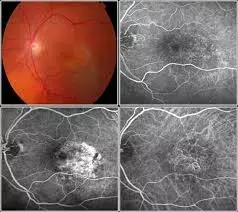- Home
- Medical news & Guidelines
- Anesthesiology
- Cardiology and CTVS
- Critical Care
- Dentistry
- Dermatology
- Diabetes and Endocrinology
- ENT
- Gastroenterology
- Medicine
- Nephrology
- Neurology
- Obstretics-Gynaecology
- Oncology
- Ophthalmology
- Orthopaedics
- Pediatrics-Neonatology
- Psychiatry
- Pulmonology
- Radiology
- Surgery
- Urology
- Laboratory Medicine
- Diet
- Nursing
- Paramedical
- Physiotherapy
- Health news
- Fact Check
- Bone Health Fact Check
- Brain Health Fact Check
- Cancer Related Fact Check
- Child Care Fact Check
- Dental and oral health fact check
- Diabetes and metabolic health fact check
- Diet and Nutrition Fact Check
- Eye and ENT Care Fact Check
- Fitness fact check
- Gut health fact check
- Heart health fact check
- Kidney health fact check
- Medical education fact check
- Men's health fact check
- Respiratory fact check
- Skin and hair care fact check
- Vaccine and Immunization fact check
- Women's health fact check
- AYUSH
- State News
- Andaman and Nicobar Islands
- Andhra Pradesh
- Arunachal Pradesh
- Assam
- Bihar
- Chandigarh
- Chattisgarh
- Dadra and Nagar Haveli
- Daman and Diu
- Delhi
- Goa
- Gujarat
- Haryana
- Himachal Pradesh
- Jammu & Kashmir
- Jharkhand
- Karnataka
- Kerala
- Ladakh
- Lakshadweep
- Madhya Pradesh
- Maharashtra
- Manipur
- Meghalaya
- Mizoram
- Nagaland
- Odisha
- Puducherry
- Punjab
- Rajasthan
- Sikkim
- Tamil Nadu
- Telangana
- Tripura
- Uttar Pradesh
- Uttrakhand
- West Bengal
- Medical Education
- Industry
High Macular Fluid volume risk factor for progressive neovascular age-related macular degeneration

High Macular Fluid volume risk factor for progressive neovascular age-related macular degeneration suggests a new study published in the Canadian Journal of Ophthalmology.
A study was done to investigate the effect of macular fluid volumes (subretinal fluid [SRF], intraretinal fluid [IRF], and pigment epithelium detachment [PED]) after initial treatment on functional and structural outcomes in neovascular age-related macular degeneration in a real-world cohort from Fight Retinal Blindness!
Treatment-naive neovascular age-related macular degeneration patients from Fight Retinal Blindness! (Zürich, Switzerland) were included. Macular fluid on optical coherence tomography was automatically quantified using an approved artificial intelligence algorithm. Follow-up of macular fluid, number of anti-vascular endothelial growth factor treatments, effect of fluid volumes after initial treatment (high, top 25%; low, bottom 75%) on best-corrected visual acuity, and development of macular atrophy and fibrosis was investigated over 48 months.
Results
A total of 209 eyes (mean age, 78.3 years) were included. Patients with high IRF volumes after initial treatment differed by –2.6 (p = 0.021) and –7.4 letters (p = 0.007) at months 12 and 48, respectively. Eyes with high IRF received significantly more treatments (+1.6 [p < 0.001] and +5.3 [p = 0.002] at months 12 and 48, respectively). Patients with high SRF or PED had comparable best-corrected visual acuity outcomes but received significantly more treatments for SRF (+2.4 [p < 0.001] and +11.4 [p < 0.001] at months 12 and 48, respectively) and PED (+1.2 [p = 0.001] and +7.8 [p < 0.001] at months 12 and 48, respectively).
Patients with high macular fluid after initial treatment are at risk of losing vision that may not be compensable with higher treatment frequency for IRF. Higher treatment frequency for SRF and PED may result in comparable treatment outcomes. Quantification of macular fluid in all compartments is essential to detect eyes at risk of aggressive disease.
Reference:
Long-term effect of fluid volumes during the maintenance phase in neovascular age-related macular degeneration: results from Fight Retinal Blindness. Gregor S. Reiter, Virginia Mares Oliver Leingang, Hrvoje Bogunovic, Daniel Barthelmes, Ursula Schmidt-Erfurth
Open AccessPublished:November 18, 2023DOI:https://doi.org/10.1016/j.jcjo.2023.10.017
Keywords:
Long-term, effect, fluid, volumes, during, maintenance, phase, neovascular, age-related, macular, degeneration, results, Fight, Retinal, Blindness, Gregor S. Reiter, Virginia Mares Oliver Leingang, Hrvoje Bogunovic, Daniel Barthelmes, Ursula Schmidt-Erfurth, Canadian Journal of Ophthalmology
Dr. Shravani Dali has completed her BDS from Pravara institute of medical sciences, loni. Following which she extensively worked in the healthcare sector for 2+ years. She has been actively involved in writing blogs in field of health and wellness. Currently she is pursuing her Masters of public health-health administration from Tata institute of social sciences. She can be contacted at editorial@medicaldialogues.in.
Dr Kamal Kant Kohli-MBBS, DTCD- a chest specialist with more than 30 years of practice and a flair for writing clinical articles, Dr Kamal Kant Kohli joined Medical Dialogues as a Chief Editor of Medical News. Besides writing articles, as an editor, he proofreads and verifies all the medical content published on Medical Dialogues including those coming from journals, studies,medical conferences,guidelines etc. Email: drkohli@medicaldialogues.in. Contact no. 011-43720751


